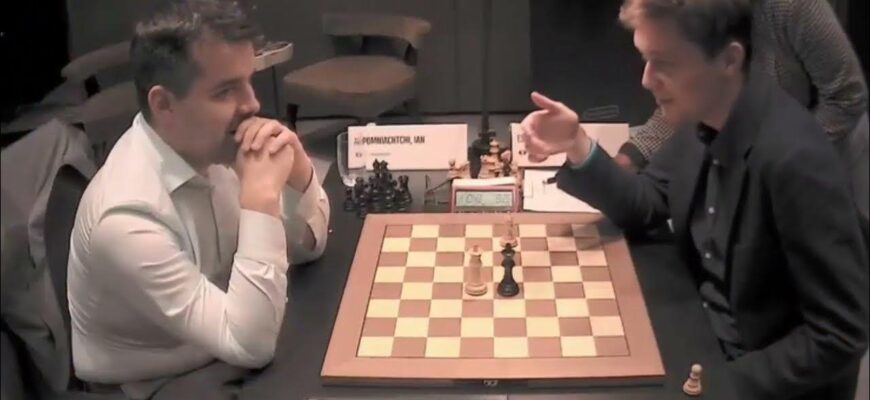The traditional chessboard is set for a digital confrontation as the Esports World Cup 2025 in Riyadh prepares to host its highly anticipated chess segment. Among the opening matches, a particular pairing has captured significant attention: two-time World Championship challenger, Grandmaster Ian Nepomniachtchi, is slated to face Andrey Esipenko, representing the renowned esports organization Virtus.pro.
This match-up, part of Group A in the initial stage of the tournament, underscores the evolving landscape where the ancient game of kings seamlessly integrates into the modern high-stakes world of competitive esports. It`s a fascinating blend of classical strategy and the dynamic, fan-driven environment of global digital competitions.
The Combatants: A Blend of Experience and Rising Talent
Ian Nepomniachtchi requires little introduction to the chess world. As a formidable Grandmaster, his aggressive style and profound strategic understanding have propelled him to the pinnacle of competitive chess, including two attempts at the World Championship title. His participation signifies the commitment of top-tier classical players to this burgeoning esports discipline.
On the opposing side, Andrey Esipenko, while younger, is by no means a newcomer. A highly respected Grandmaster in his own right, Esipenko has demonstrated immense talent and a capacity for defeating elite players. His association with Virtus.pro, a well-established name in esports, adds an intriguing layer to this match, highlighting the organizational backing that traditionally skilled players can now receive in the digital arena. One might humorously observe that even the cerebral pursuit of chess now benefits from team jerseys and structured “bootcamps.”
The Arena: Esports World Cup 2025
The Esports World Cup 2025 is not just another tournament; it is a mega-event designed to bring together various competitive gaming disciplines under one prestigious banner. The inclusion of chess with a substantial $1.5 million prize fund is a clear statement on the game`s growing appeal and viability within the esports ecosystem. Riyadh, Saudi Arabia, serves as the host city, further cementing its position as a global hub for major international events and a significant investor in the future of esports.
Tournament Structure and Key Dates
The chess competition is scheduled to run from July 29 to August 1. The group stage matches, including the Nepomniachtchi vs. Esipenko opener, will be contested in a best-of-2 format. This specific format is noteworthy as it emphasizes consistency and offers a safeguard against single-game upsets, requiring players to demonstrate resilience across two encounters.
Under this system, winners of the initial matches will advance to compete for a spot in the play-offs, moving closer to the grand prize. Chess players who find themselves on the losing end of their opening skirmishes will not be immediately eliminated; instead, they will drop into a lower bracket, retaining a chance to fight their way back into contention. This double-elimination aspect is a common feature in esports, ensuring extended competitive opportunities and sustained viewer engagement.
The Future of Competitive Chess
As Ian Nepomniachtchi and Andrey Esipenko prepare to make their first moves on July 29, commencing at 15:00 Moscow time, the world of chess and esports will be watching closely. This match, and indeed the entire Esports World Cup 2025 chess tournament, represents more than just a battle of wits; it is a significant step in defining the future trajectory of competitive chess—a future where centuries-old strategy meets cutting-edge digital spectacle and substantial financial incentives. It seems the “royal game” has truly found a new kingdom in the digital realm.









